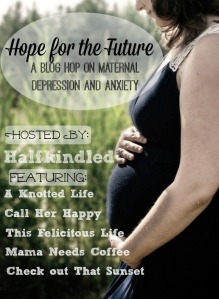
Not this bad.
So. When I was in the psych ward last year and my doctors approached me with the idea of electric shock treatment (aka ECT: electroconvulsive therapy), my first reaction was, “that still exists?!” It turns out it’s not the torture treatment it used to be. It’s safe, quick, easy, and very effective. But my hospital wasn’t very good at giving me the full picture, so here’s what I’d like you to know if you’re considering ECT. (Please note, these explanations are in my own words. I’m don’t know if they are 100% accurate, and I’m sure they’re not technically correct. Double-check with a good doctor!)
- It’s an option for people who are already using the conventional means of therapy and/or medication, and aren’t getting better; and for people who need to get better in a hurry. As a postpartum mother of 4 with suicidal depression, who’d already been on medication and therapy for years, I needed something to change, quick.
- It re-sets your brain. My husband did a lot of research and found out that ECT kind of erases some of the thought patterns that have built up in your head. If you head back home after your treatments into a situation that hasn’t changed, with all the same stressors and problems, your mind will fall back into its old patterns again. You need to take advantage of the time after ECT to work hard and establish good new patterns for your brain: coping strategies, positive thinking, relaxation techniques, etc. I found Cognitive Behavioral Therapy extremely helpful for this.
- That means that you’re going to have a long recovery period. You’ll probably need to take time off work, or lessen your other responsibilities. You’ll need people nearby to cover for you and help you out. You’ll need someone to drive you to your treatments and stay in the hospital the whole time, and you’ll need someone to check in on you while you’re recovering. Obviously this is a tall order. But apparently, unless you take these precautions, your ECT may not have much effect and you may end up back where you started.
- My side effects were short-lived irritability and confusion, and some fairly significant memory loss. I was told that I would lose the memory of the morning before the treatment, and that was it; but in my case, that wasn’t true. I’ve lost memories from the last few years of my life, mostly the last year. I can’t remember places we went, things the kids did, books I’ve read, people I visited. I can’t remember what my friends’ youngest kids are named, or what they’ve told me about recent developments in their lives. It hasn’t really affected my life that much, but it makes me sad. I feel like I’ve lost part of my identity. I think it was worth it, though. I’m not sure how much of my recovery was due to the ECT, and how much was due to medication, therapy, and changes in my situation; but I’ve talked to people for whom ECT was an unequivocal success, even a life-saver.
- Get somebody you trust to help you research and make the decision, especially if you’re in the hospital or in the middle of a crisis. I was scared, uninformed, panicky, and generally not in any state to make important decisions. I was so lucky to have my persevering husband to depend on. This is something you shouldn’t do alone.
Please write to me if you’d like to talk about it! My email is preverized@aol.com







